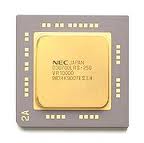Windows XP was balky and terrible when it was new, too. The only difference now is that if somebody discovers a way to wipe everything on your C:\ disk just using some code on a web page, Microsoft is not going to fix it for you, or even attempt damage control by not releasing details about the error until after the release of the Service Pack, as they did back when SP1 came out back in the day. (Also, in re XP "balkiness" -- computer performance has since far outpaced Windows XP's needs, which means that among "commercial" operating systems, it sort of stands alone as appearing far lighter on hardware requirements. The fact that it's doing this while also making inefficient use of system resources, notwithstanding.)
Ultimately, if you don't want to deal with a commercial desktop operating system (Windows or Mac OS X) then you need to deal with, well, something else. If you don't want to deal with that, then you're left with Windows or Mac OS X again, so I suppose the question is whether you want the ability to choose your window manager and desktop environment, and configure it as such, or you want "support" and some of the other comforts of commercial software.
In regards to the
Reference Release
-- do you mean the initial release of any given "version" of Mac OS X? I'm actually not sure how to parse this article, but I imagine that what it means is that 10.5.0, 10.6.0, 10.7.0, 10.8.0 and 10.9.0 are the "reference releases" of Mac OS X.
Not
that Mac OS X 10.6.8 is the reference point for the entire Mac OS X family. A whole lot has changed since 2009 when Mac OS X 10.6.0 was released, and Apple's simply not willing to run their platform that way, whether or not it would cater to your particular whims.
If your whims are a commercially supported desktop operating system that rarely changes, you really should be looking at a commercial UNIX or VMS, and if you think that Apple's "fumbling around with the latest trends in UI design and functionality for the f*ck of it" gets in the way of your productivity, then I suspect you'd find it worth your time, money, and effort to move to another platform. (Also, if you're keeping your Macs for any length of time, keeping the same OS version on them for their entire lifetime is a reasonably bad idea, especially now that new major versions of Mac OS X are free for Mac owners, and Apple has not increased the system requirements for 10.9 or 10.10.) If you have "critical" applications on a Mac, and you're bad at backups, then it is good to hold off for a while, but it's a bad idea to never upgrade. It's not like Windows where Apple's committing to support any given major version for a decade.
To use a terrible car analogy -- it sounds to me as though we've reached the point where users who have been around for a while believe that the system shouldn't be changed because they know it and they like the particular options it gives you. (See: commodorejohn) Even if those options are terrible and dangerous, not only to yourself and your own data, but to the interconnected networks at large.
Back in 1984, you could have a Mac with any desktop picture you wanted, as long as that picture was a 50% gray gradient, and we've long since reached the point where that's just not what computers are anymore. As much as it's a productivity tool, it's a vehicle for personal expression, and because we've
long
reached the point where computers are also home appliances, you can expect them to be just as subject to design trends as anything else.
And, let's be honest, even large equipment and professionally focused equipment is subject to "design." Nikon is selling
this professional level camera
that has had a "retro" visual style applied, even though you could argue that
this
is the true pinnacle of professional camera design.













 phase out machine, phase out OS version.
phase out machine, phase out OS version.
